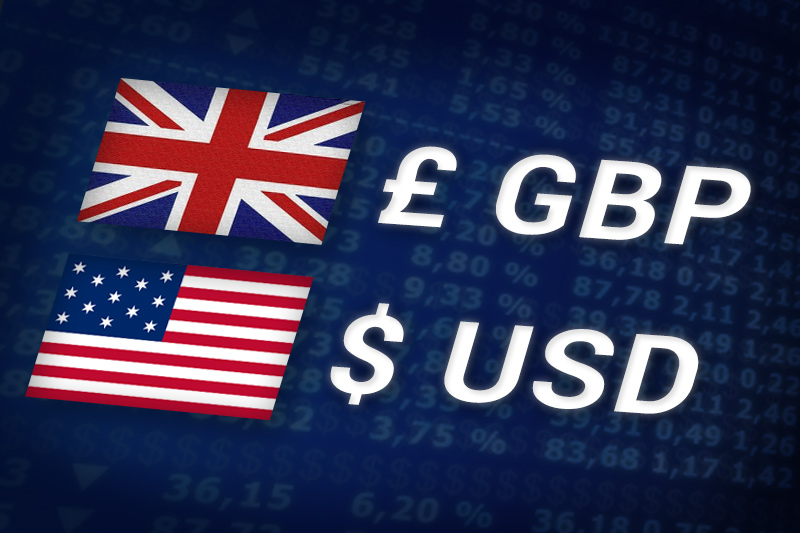Investing.com - The pound weakened against the dollar on Tuesday as the greenback rose amid bargain hunter after tanking on U.S. Federal Reserve Chairman Ben Bernanke's hints that monetary easing may be needed to stimulate the U.S. economy.
In Asian trading on Tuesday, GBP/USD hit 1.5965, down 0.03%, up from a session low of 1.5958 and off from a high of 1.5972.
The pair was likely to find support at 1.5801, Monday's low and resistance at 1.5974, Monday's high.
In the U.S., Fed Chairman Bernanke suggested loose monetary policies will need to stay in place to fuel consumer and business demand to make lasting improvements to the labor market.
While unemployment rates are falling, businesses are hiring mainly to replace positions made vacant during recession-time layoffs, while they aren't ramping up to expand.
"Further significant improvements in the unemployment rate will likely require a more-rapid expansion of production and demand from consumers and businesses, a process that can be supported by continued accommodative policies," Bernanke told the National Association for Business Economics Annual Conference, Washington, D.C., according to a copy of his speech.
The markets interpreted those comments to mean a new round of quantitative easing may be needed to jolt the economy.
Under quantitative easing, the Fed injects liquidity into the financial system by buying assets held by banks with the aim of fueling economic activity and hiring.
The dollar weakens amid easing, and Bernanke's suggestions for such policy sent the pound rising until bottom fishers brought the greenback back up amid choppy trading in Asia on Tuesday.
The pound also saw support when the Ifo Institute said its index of German business confidence inched up to 109.8 from a reading of 109.7 in February, better than expected.
Meanwhile, German Chancellor Angela Merkel said she may be willing to bolster a firewall to ringfence the debt crisis, which further fueled appetite for risk in Asia.
A healthier European economy benefits the U.K.
The pound, meanwhile, was flat against the euro and softer against the yen, with EUR/GBP trading at 0.8364 and GBP/JPY down 0.01% at 132.26
Later Tuesday, Fed Chairman Bernanke is due to appear in public again, as is Federal Reserve Bank of Dallas President Richard Fisher.
More housing data is due out, with the S&P/Case-Shiller House Price Index scheduled for release.
Markets will also keep a sharp eye on the U.S. Conference Board's consumer confidence index.
In the U.K., the Confederation of British Industry's Distributive Trades Survey will shed light on the retail sector.
In Asian trading on Tuesday, GBP/USD hit 1.5965, down 0.03%, up from a session low of 1.5958 and off from a high of 1.5972.
The pair was likely to find support at 1.5801, Monday's low and resistance at 1.5974, Monday's high.
In the U.S., Fed Chairman Bernanke suggested loose monetary policies will need to stay in place to fuel consumer and business demand to make lasting improvements to the labor market.
While unemployment rates are falling, businesses are hiring mainly to replace positions made vacant during recession-time layoffs, while they aren't ramping up to expand.
"Further significant improvements in the unemployment rate will likely require a more-rapid expansion of production and demand from consumers and businesses, a process that can be supported by continued accommodative policies," Bernanke told the National Association for Business Economics Annual Conference, Washington, D.C., according to a copy of his speech.
The markets interpreted those comments to mean a new round of quantitative easing may be needed to jolt the economy.
Under quantitative easing, the Fed injects liquidity into the financial system by buying assets held by banks with the aim of fueling economic activity and hiring.
The dollar weakens amid easing, and Bernanke's suggestions for such policy sent the pound rising until bottom fishers brought the greenback back up amid choppy trading in Asia on Tuesday.
The pound also saw support when the Ifo Institute said its index of German business confidence inched up to 109.8 from a reading of 109.7 in February, better than expected.
Meanwhile, German Chancellor Angela Merkel said she may be willing to bolster a firewall to ringfence the debt crisis, which further fueled appetite for risk in Asia.
A healthier European economy benefits the U.K.
The pound, meanwhile, was flat against the euro and softer against the yen, with EUR/GBP trading at 0.8364 and GBP/JPY down 0.01% at 132.26
Later Tuesday, Fed Chairman Bernanke is due to appear in public again, as is Federal Reserve Bank of Dallas President Richard Fisher.
More housing data is due out, with the S&P/Case-Shiller House Price Index scheduled for release.
Markets will also keep a sharp eye on the U.S. Conference Board's consumer confidence index.
In the U.K., the Confederation of British Industry's Distributive Trades Survey will shed light on the retail sector.
